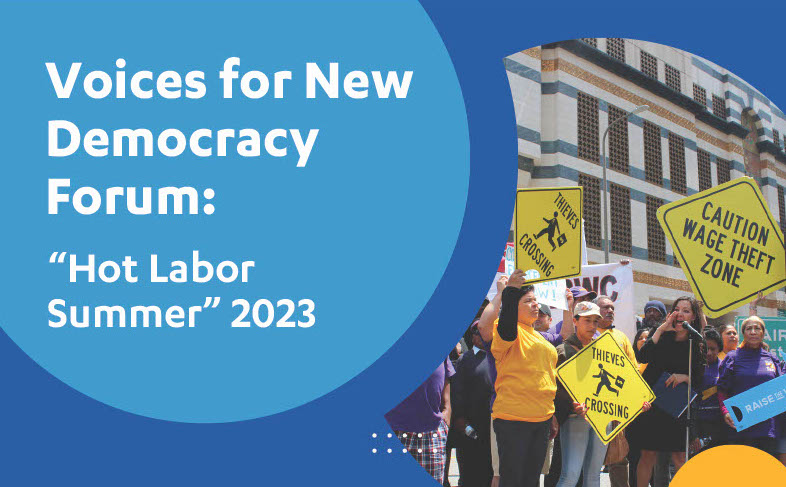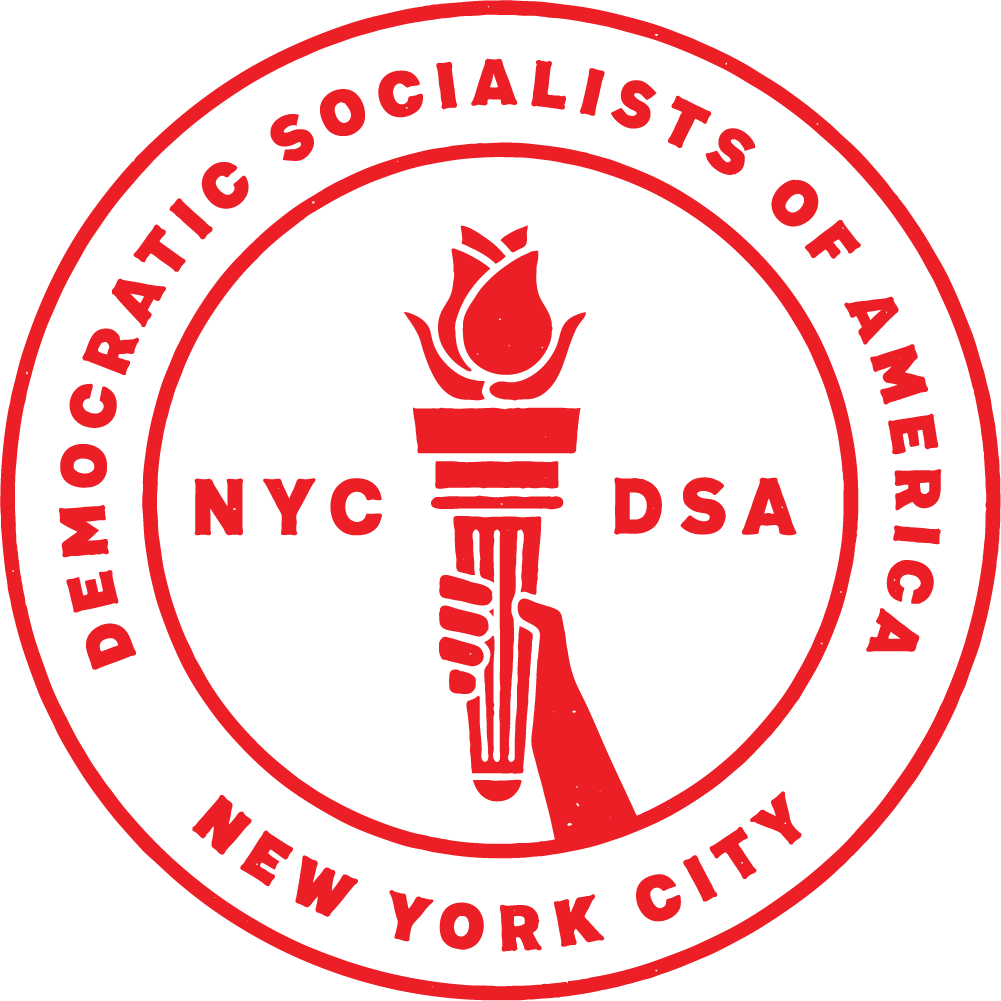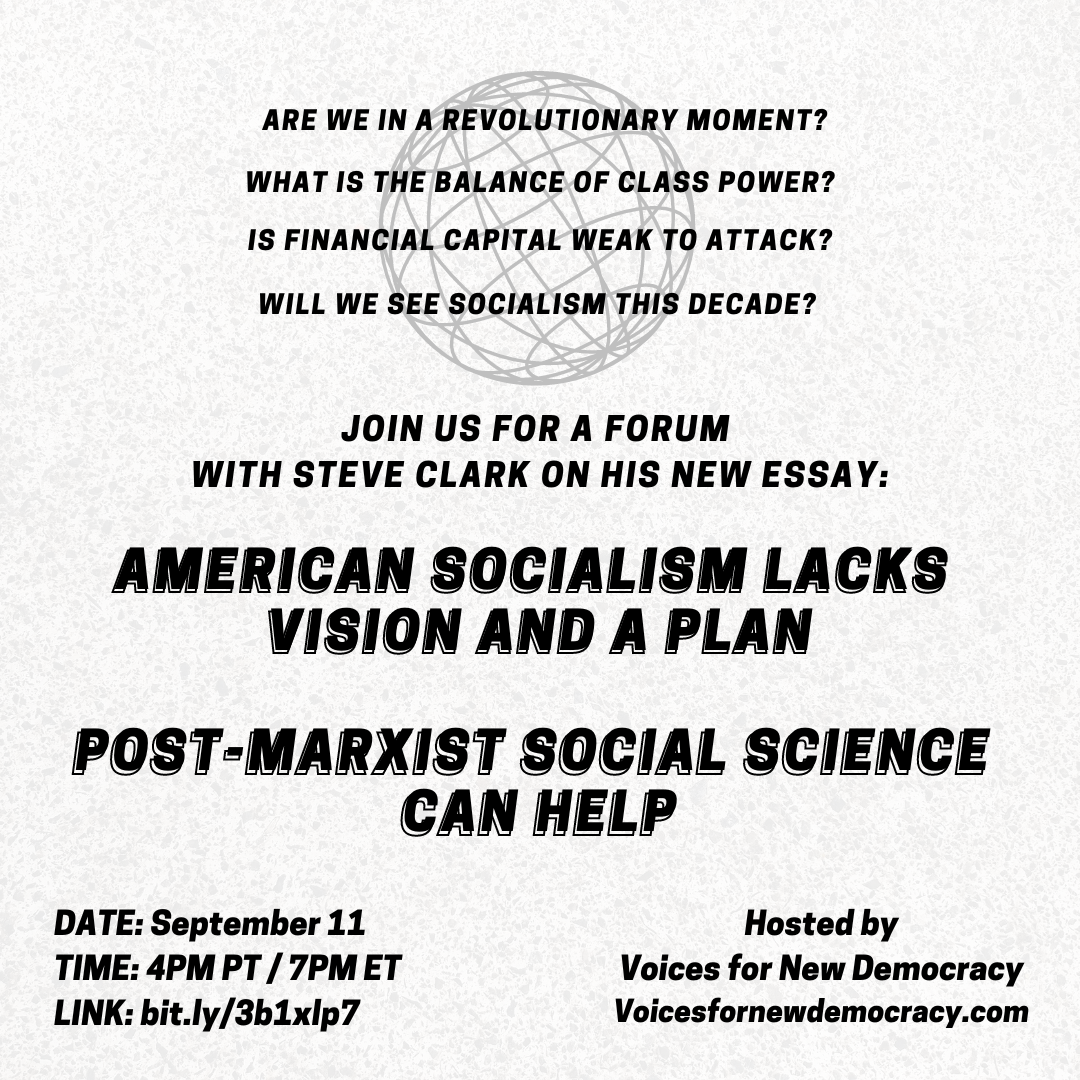| Jose Calderon |
It is important that any analysis of the electoral, labor, immigrant, and racial inequities in the U.S. include the relations between the local, national, and international. Of primary significance in that analysis must include the U.S. involvement in Ukraine, its policies toward China, and the results of those policies on the working class in the U.S. and the countries of the Global South.
Biden’s policies are taking billions away from needed resources in the U.S. to expanding the war in Ukraine; to advancing militarization policies from Japan and South Korea in the northern Pacific to Australia, the Philippines, Thailand, and Singapore in the south and India and China – as part of policies aimed at encircling China and advancing support for an independent Taiwan. The Federal Reserve’s raising of interest rates has resulted in corporate profits being the biggest contributor to inflation. Many neoliberal economists and Western central bank officials have ignored the rise in corporate profits and instead have blamed inflation on workers’ wages. Today’s inflation and the use of economic sanctions throughout the world has caused the U.S. Dollar to continue its dominance, to becoming more expensive, to driving up costs, to deepening poverty conditions, causing food shortages (in the global south, Middle East, North Africa, and worldwide), and forcing increased migration from the South to the North. This soaring inflation and the devaluing of currencies have created a debt crisis in these regions resulting in their currencies depreciating, the U.S. dollar strengthening, and an inability for these countries being able to service their debts.
There is no getting around how the Ukraine war and the economic war with China are affecting many countries of the Global South that are principal trading partners and investors. Argentina, for example, has an inflation rate that has reached 100%. As in the debt deal here in the U.S., the governments in the Global South, including eight countries in Latin America who are now led by left administrations, are having to cut health, education, and welfare programs. The result has been massive protests in these countries as well as looking for alternative solutions such as developing their own currencies and regional cooperations (such as the Community of Latin American and Caribbean States (CELAC) as an alternative to the Organization of American States (with a recent meeting where there were agreements on strengthening economic trade cooperation).
In following with the analysis that the families who are coming here from Central America, Mexico, Haiti, Africa, Asia, and Latin America are coming as a result of historical colonization and this country’s foreign policies (that have historically separated immigrants into political and economic refugees based on the relationship between the U.S. and whether it supports the government and policies of their country of origin) we have 450,000 refugees admitted legally to the U.S. in the last two years – and a double standard applied with 300,000 from Ukraine and with Afghanistan and Latin America accounting for the rest.
While the Biden administration has extended Temporary Protective Status for 670,000 immigrants from 16 countries (a program that Trump wanted to terminate) — and a (temporary – 2-year) parole program for up to 360,000 immigrants from Cuba, Nicaragua, and Venezuela, the administration has followed up its support of asylum bans similar to those implemented by Trump (such as Title 42 that was used to deport nearly 3 million asylum seekers) with another measure prohibiting immigrants and refugees from seeking asylum at the border without first applying for protection in a country they passed through (a measure blocked this week – by a federal judge in California). Meanwhile, three Republican governors are implementing a strategy, proposed by Trump back in 2018, to bus and fly thousands of immigrants from the border to sanctuary cities and places such as Martha’s Vineyard. The xenophobic strategy is now part of the election campaigns of right-wing politicians and candidates, including Trump, who are placing the immigration issue at the top of their agendas in criticizing the Biden administration for its “lax” immigration policies.
There is no getting around the existence of world capitalism and the economic wars that are going on and how they affect our internal politics and economics. There is a continued need to deepen our vision for systemic change, something that the social movements in the Global South are dealing with in overcoming the obstacles of international capitalism and neo-liberalism.
There is the need for a social movement that includes organizing for peace and channeling needed resources to climate change and quality of life – a movement that is able to cross borders and build alliances with movements in the Global South with strategies that are aimed at the same source that is fueling militarization, sanctions, encirclement, scapegoating and corporate profits at the expense of working people, a movement that organizes our communities against immigration and refugee policies that only focus on enforcement, that fights for policies that will lead to permanent residency and citizenship for our immigrant and refugee families, and that steps-up citizenship drives and voter turn-out efforts to expand the number of representatives who can advance systemic changes for our quality of life and for global pro-immigrant and non-exploitative development policies.





